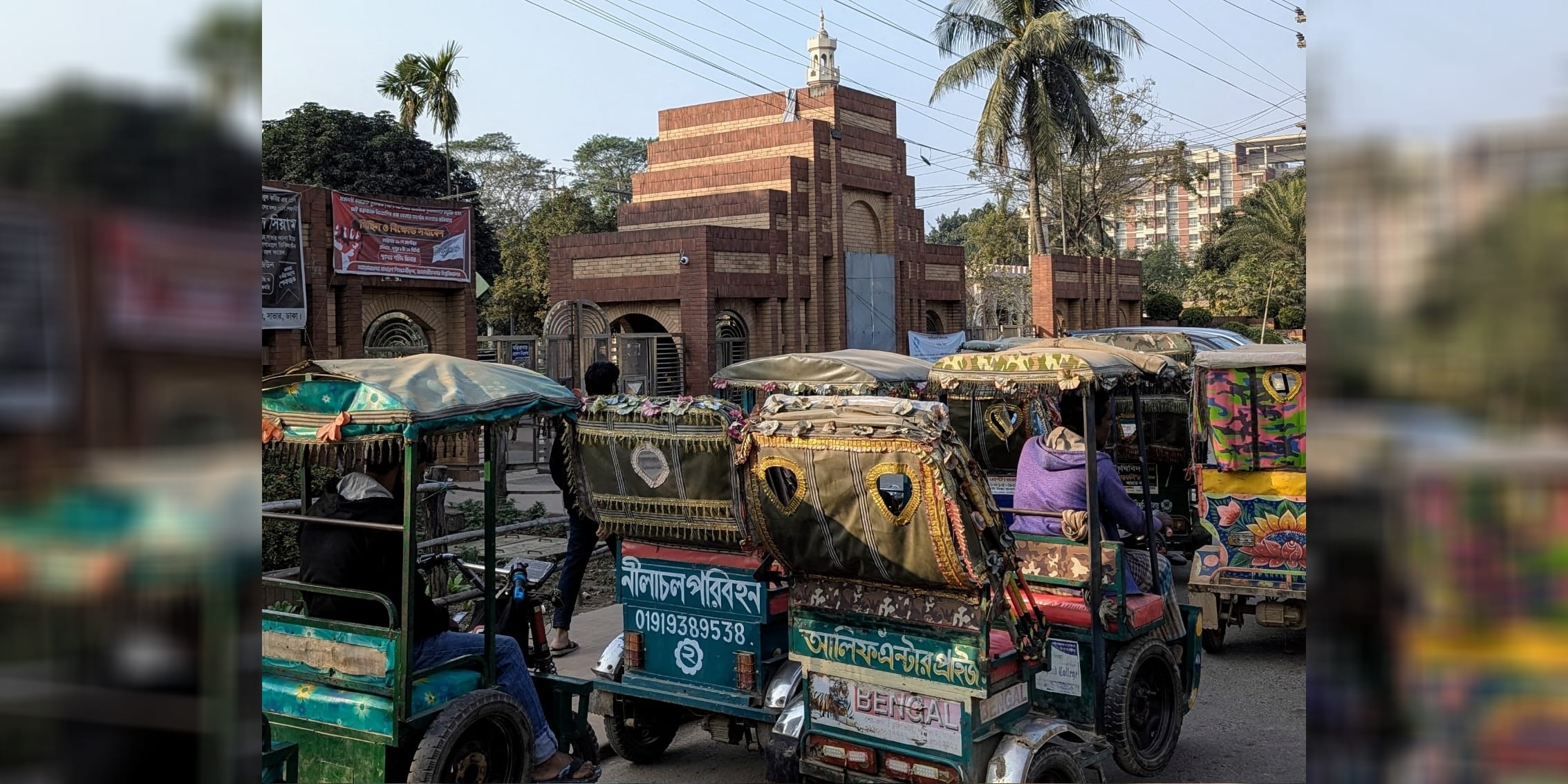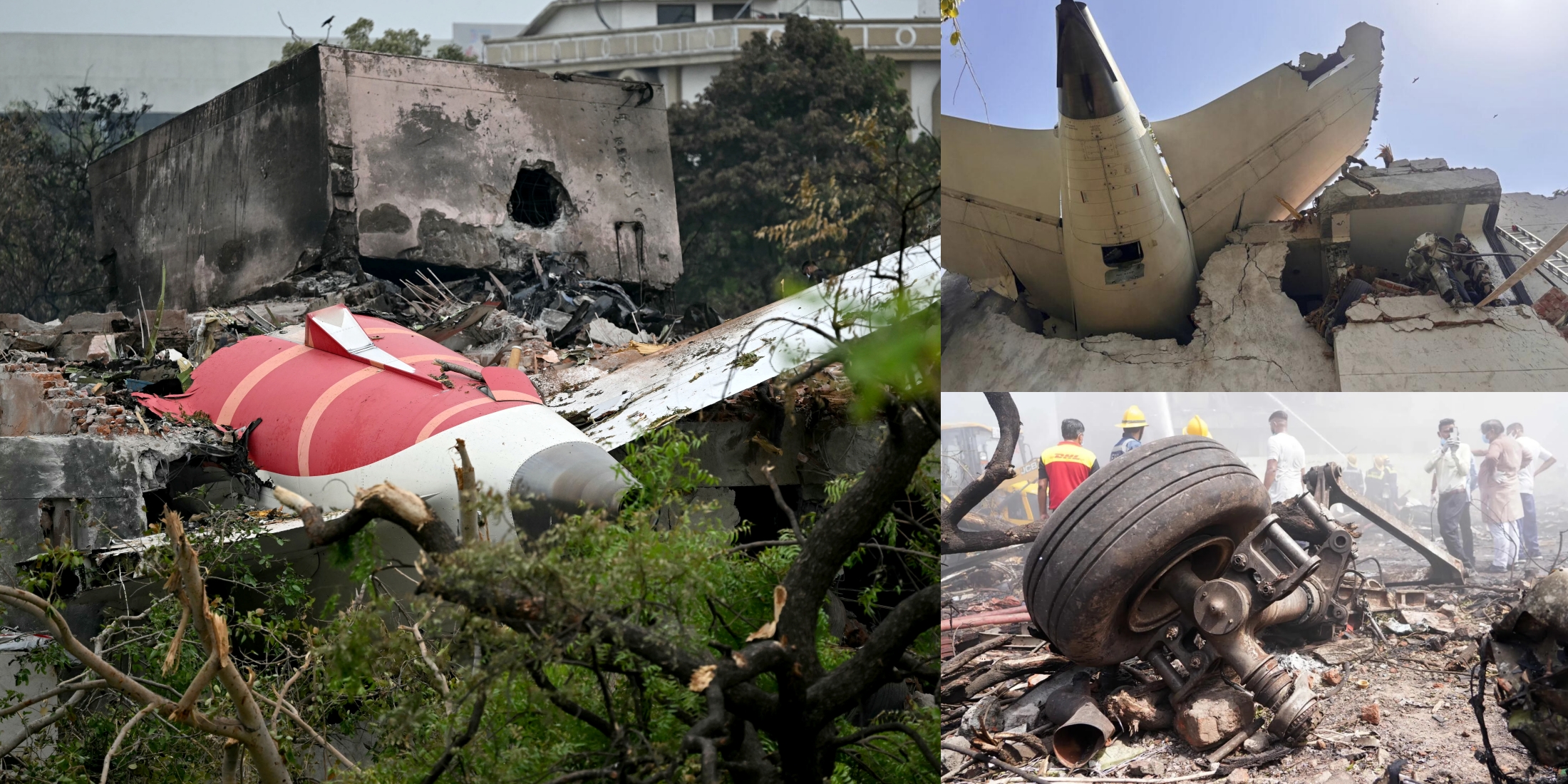Afsana Rachi, a 20-year-old student at Jahangirnagar University, was hit by a speeding battery-powered rickshaw. She passed away from her injuries on the way to the hospital. This is just one of November’s deadly accidents, costing lives lost on highways, urban streets, and rural roads. The rise in alarming auto-rickshaw-related tragedies like these continue to affect families and communities across the nation.
Aside from speeding, taking the wrong way is another major problem. This made 27-year-old Moinul Hossain Dhrubo face his first accident in years, in fact in all the time he’s ridden a motorbike. The DU music grad ended up with numbness and 16 stitches in his right arm on a slow drizzling October evening. He just crossed a parked car on the leftmost lane and fell from his vehicle as a battery-powered rickshaw hit and sliced through his arm.
Road accidents in Bangladesh have reached life-threatening levels, with 5,485 cases reported in the first nine months of 2024. According to the same report from the Road Safety Foundation, these accidents killed 5,598 people and injured more than 9,600. Popular opinion and current news suggest that battery-powered auto rickshaws account for a high number of three-wheeled vehicle fatalities. This highlights the increased danger of unlicensed vehicles and excessive speed, and breaking driving laws. The risk is even higher for areas with more crowds to fall victim. Examples include roads near hospitals, educational institutions, and other densely populated zones and highways. Implementing Early Warning Systems (EWS) in such areas could reduce risks and improve road safety.
Overloading is another significant concern as these vehicles often carry an excess of passengers than their capacity. In the process, they increase the danger of losing control of a vehicle and, consequently, accidents. Battery-Powered auto-rickshaws even share space with larger and faster vehicles on congested highways. The lack of enforcement of traffic laws, along with the absence of clear regulations, has allowed dangerous and illegal auto-rickshaws to operate and cause life-threatening circumstances.
Each road accident has a massive emotional and financial consequence. Families lose loved ones, breadwinners, and carers, while survivors frequently suffer permanent injuries and trauma, as we’ve seen from Afsana Rachi’s death. According to 2022 data from the World Health Organization, road accidents in Bangladesh not only result in significant loss of lives but also impose a severe economic burden. So much so, that they cost the country approximately 5.1% of our GDP annually. This includes medical costs, lost productivity, and the economic burden on families thrust into financial difficulties. Available data also point out the systematic failure and the urge for reforms. Without quick action, the cycle of accidents and losses will continue, leaving many families to mourn unexpected deaths.
Addressing this issue requires a multi-layered approach combining strict law enforcement and infrastructural improvements. Auto-rickshaws must be regulated with proper licensing for both drivers and vehicles. Authorities must also be strict about removing unsafe and unregistered vehicles, imposing speed limits, and restricting allowable zones for this kind of vehicles. Improving road infrastructure such as segmented driving lanes can reduce the risks posed by battery-powered auto-rickshaws. Plus, the rickshaw garages reportedly steal electricity to charge the vehicles which leads to a major financial loss for the government. All the garages should also fall under regulations and regular inspection.
Battery-powered auto rickshaws are popular for their low cost and accessibility to rickshaw pullers. To tackle the issue technologically, local manufacturers like Runner can be encouraged to produce affordable and standardized vehicles. They have previously launched the first “Made in Bangladesh” three-wheeled rickshaw with 70% locally made components. This initiative has reduced costs compared to imported models and met the growing demand for eco-friendly vehicles. Collaborating with engineering universities can build more secure and cost-effective auto-rickshaws. Along with that, public awareness and financial assistance, such as microloans for rickshaw pullers, will accelerate the transition to environmentally friendly vehicles. Implementing and maintaining these are a big challenge for the system but there is hardly any substitute to it for controlling road accidents. We might have safer roads and develop a more sustainable transport system if we solve this with the right measures.










